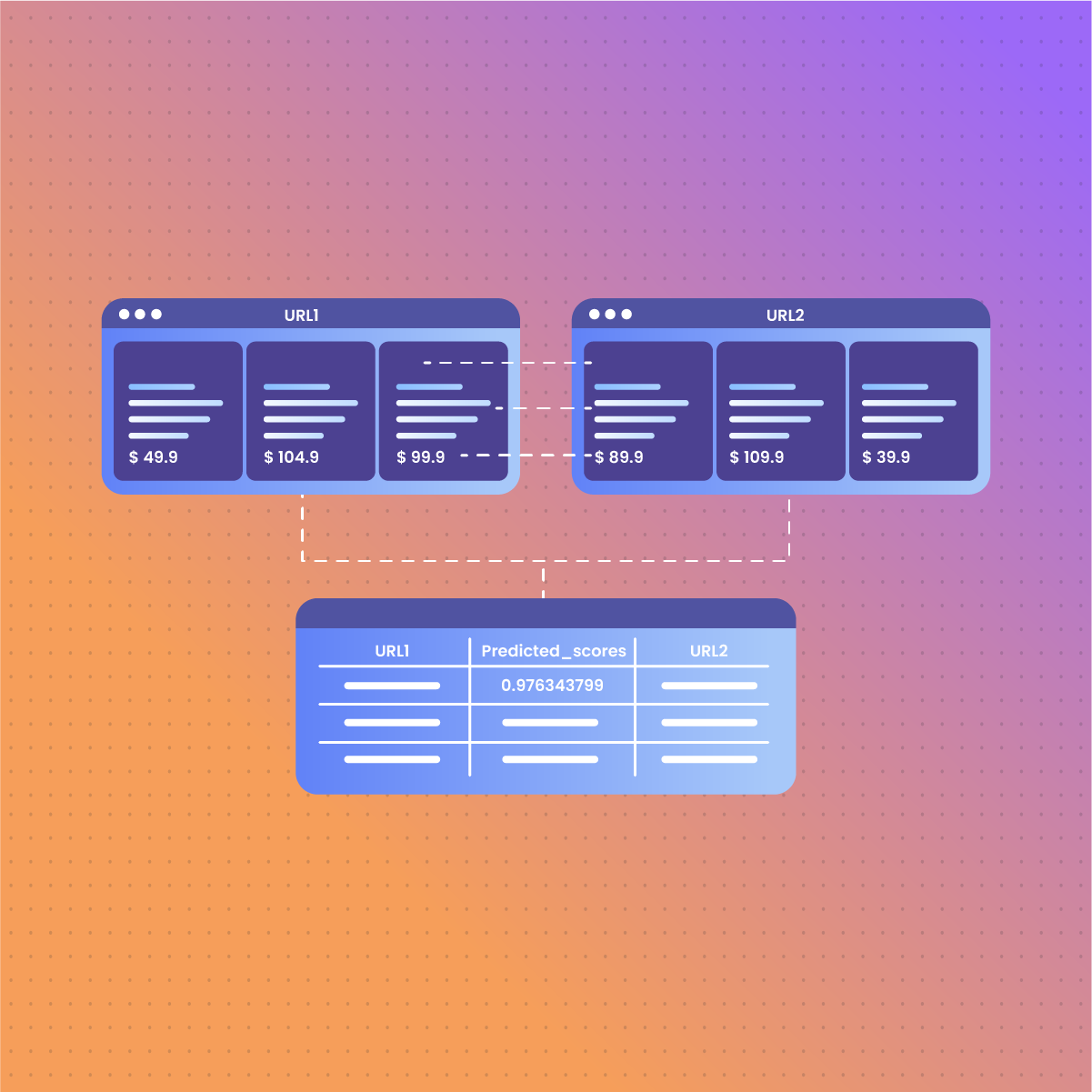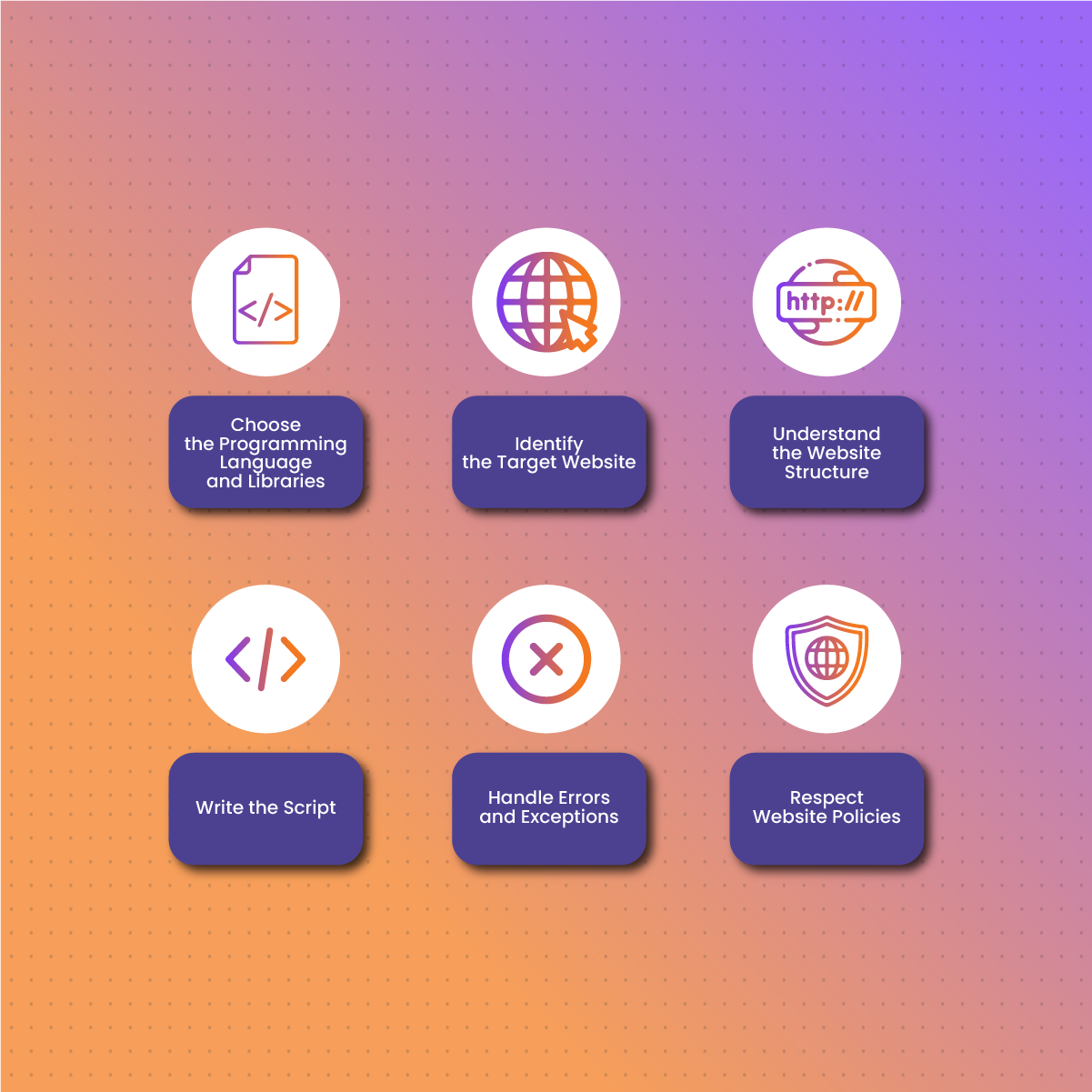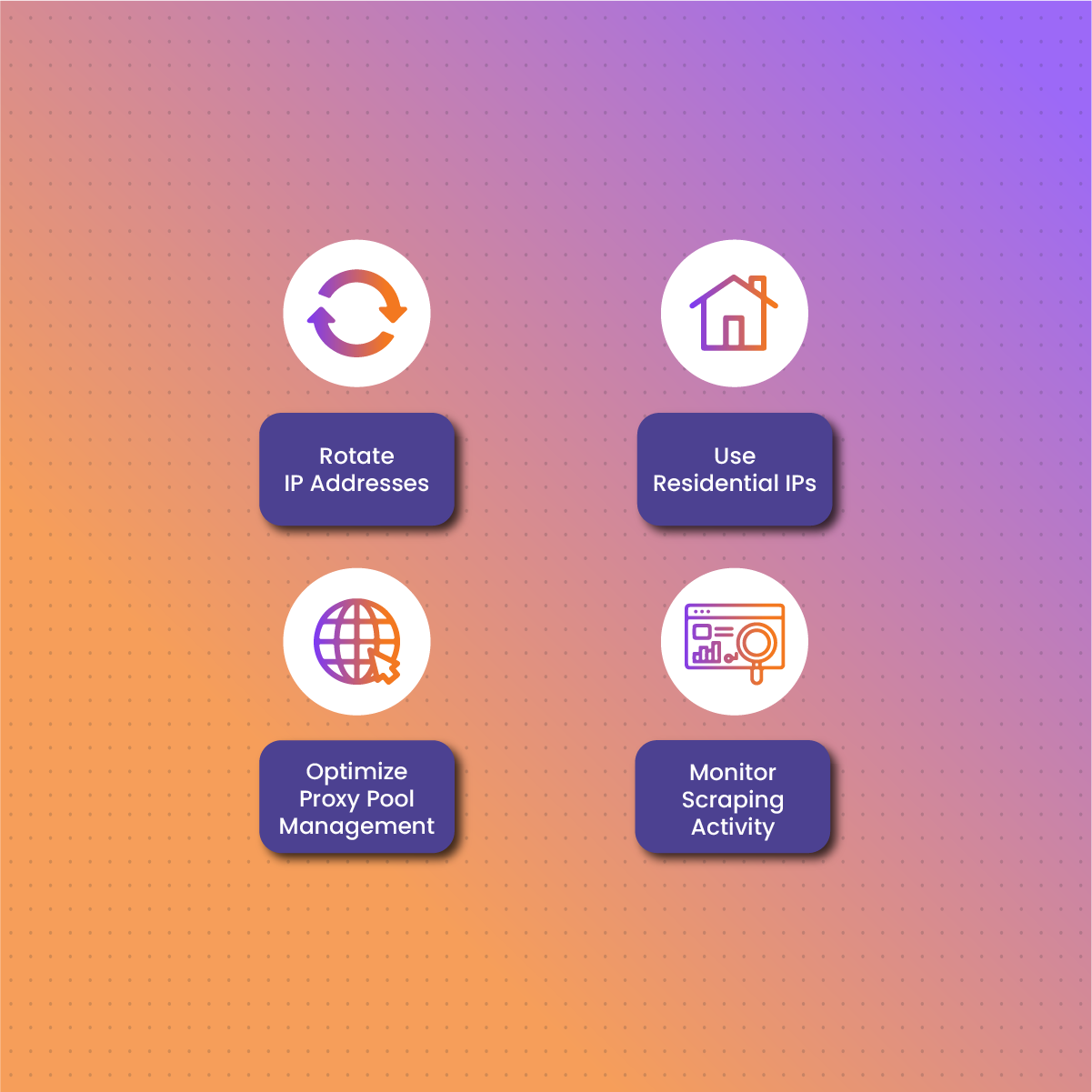Introduction
It is no longer news that the ecommerce industry is a competitive market. Hence, the need for businesses to stay ahead of the competition. One relevant strategy that has emerged in recent years is competitor price scraping. But what exactly is competitor price scraping, and why does it matter?
In today’s hyper-competitive market, where every penny counts, having insight into what your competitors are charging can make all the difference. This not only helps you stay competitive but also ensures you’re maximizing your profits.
Therefore, this guide will explore the concept of scraping competitor’s prices. We will discuss different methods for gathering pricing data, its benefits, and practical tips for implementing effective scraping strategies.
What you should know about competitor price scraping
So, why is competitor price scraping so important? Well, imagine you’re running a small online boutique selling handmade jewelry. You want to attract customers with competitive prices, but you also need to make sure you’re not undercutting yourself. By scraping your competitors’ prices, you can see what similar products are selling for elsewhere and adjust your prices accordingly.
Competitor price scraping is like being a detective in the world of business. It involves using various tools and techniques to gather pricing data from competitors’ websites, online marketplaces, or other sources. Just as a detective collects clues to solve a mystery, businesses scrape pricing data to unravel the pricing strategies of their competitors.
Examples of relevant industries that use competitor price scraping
Scraping competitor’s prices isn’t just for big corporations with deep pockets. It’s relevant across a wide range of industries. Here are a few examples:
- ecommerce: Online retailers can scrape competitor’s prices to monitor prices on popular platforms like Amazon or eBay. This allows them to adjust their own prices to remain competitive and attract customers.
- Hospitality: Hotels and travel agencies can scrape competitors’ prices to stay competitive in the crowded travel market. By monitoring prices on booking websites, they can adjust their rates to attract more guests without sacrificing profitability.
- Automotive: Also, car dealers can scrape competitor’s prices to stay informed about pricing trends in the automotive market. By monitoring prices of similar models from competitors, they can adjust their pricing strategies to attract more buyers.
Why competitor price scraping matters
Competitor price scraping isn’t just a fancy concept; it’s a powerful tool that can give businesses a significant edge in the world of commerce. Here is why scraping competitor’s price matters in every business:
Competitive Advantage
In a crowded marketplace, standing out from the competition is essential for success. Competitor price scraping provides businesses with invaluable insights into their competitors’ pricing strategies. By knowing what prices competitors are offering, businesses can adjust their own prices to remain competitive. This helps attract customers who are price-sensitive and ensures that businesses don’t lose sales to competitors offering lower prices.
Price Optimization
Regarding price scraping, setting the right price for products or services can be a delicate balancing act. If the price is too high, customers may be driven away; if the price is too low, profits may suffer. Scraping competitor’s prices allows businesses to optimize their pricing strategies by comparing their prices to those of their competitors. By analyzing pricing data, businesses can identify opportunities to adjust their prices to maximize profitability while remaining competitive in the market.
Market Insights
Understanding market dynamics is crucial for success in any industry. Competitor price scraping provides businesses with valuable insights into market trends, customer preferences, and competitor behavior. By price monitoring and tracking, businesses can identify changes in demand, pricing trends, and competitive positioning. This allows businesses to adapt their strategies accordingly, whether it’s launching new products, adjusting marketing campaigns, or entering new markets.
Strategic Decision-Making
In a business environment, making informed decisions is more critical than ever. Therefore, scraping competitor’s prices empowers businesses to make strategic decisions based on real-time market data. Whether it’s deciding on pricing strategies, inventory management, or marketing campaigns, having access to accurate pricing data allows businesses to make decisions with confidence. This helps minimize risks and maximize opportunities for growth and success.
Methods of competitor price scraping
Competitor price scraping can be approached in various ways, each with its own set of advantages and limitations. However, there are three common methods of scraping competitor’s prices. Let’s consider them and discuss the pros and cons of each:
Manual Scraping
Manual scraping involves manually visiting competitors’ websites and recording pricing data. This method may seem old-fashioned, but it can be effective for smaller-scale operations or when scraping a limited number of products.
Advantages
- Low cost: Manual scraping typically doesn’t require any specialized tools or software, making it a cost-effective option for small businesses.
- Flexibility: Manual scraping allows for greater flexibility and control over the scraping process, as users can customize their approach based on specific requirements.
Limitations
- Time-consuming: Manually scraping pricing data can be extremely time-consuming, especially when dealing with large volumes of data or frequent updates.
- Error-prone: Human error is unavoidable in manual scraping. It leads to potential inaccuracies in the collected data.
- Scalability: Manual scraping is not scalable and may become impractical as the volume of data or frequency of scraping increases.
Web Scraping Tools
Web scraping tools automate the process of collecting pricing data from competitors’ websites. These tools typically allow users to specify the data they want to scrape and can handle large volumes of data with minimal human intervention.
Advantages
- Efficiency: Web scraping tools can significantly reduce the time and effort required to collect pricing data, making the process more efficient.
- Accuracy: Automated scraping reduces the risk of human error, resulting in more accurate and reliable data.
- Scalability: Web scraping tools are highly scalable and can handle large volumes of data or frequent updates with ease.
Limitations
- Cost: While there are many free or low-cost web scraping tools available, more advanced features may require a paid subscription or investment in custom development.
- Technical expertise: Using web scraping tools may require some level of technical expertise to set up and configure properly.
- Legality: Some websites have measures in place to prevent scraping, and using web scraping tools may violate the terms of service or copyright laws.
API Integration
API integration involves accessing pricing data from competitors’ websites or online marketplaces through their application programming interfaces (APIs). This method allows for real-time access to pricing data and can be more reliable than traditional scraping methods.
Advantages
- Real-time data: API integration allows for real-time access to pricing data, ensuring that businesses always have access to the latest information.
- Reliability: API integration is often more reliable than traditional scraping methods, as it relies on official data sources provided by the website or marketplace.
- Compliance: Using APIs to access pricing data may be more compliant with legal and ethical standards, as it typically involves obtaining data through authorized channels.
Limitations
- Availability: Not all websites or online marketplaces offer APIs, limiting the availability of this method for scraping pricing data.
- Technical complexity: API integration may require a higher level of technical expertise to implement compared to other scraping methods.
- Cost: Some APIs may have usage limits or require a subscription fee, which can add to the cost of scraping pricing data.
In conclusion, each method of competitor price scraping has its own advantages and limitations. The choice of method depends on factors such as the volume of data, frequency of scraping, technical expertise, and budgetary constraints. By understanding the pros and cons of each method, users can select the approach that best suits their needs and objectives.
How To Write A Competitor Price Scraping Script 
Writing a competitor price scraping script involves several steps. Below is a step-by-step guide on how to write a basic competitor price scraping script using Python and the BeautifulSoup library:
Choose the Programming Language and Libraries
For web scraping, Python is a popular choice due to its simplicity and the availability of powerful libraries like BeautifulSoup and requests. Make sure you have Python installed on your system along with the BeautifulSoup library.
Identify the Target Website
Choose the website(s) from which you want to scrape pricing data. Ensure that the website allows web scraping and review its terms of service to avoid any legal issues.
Understand the Website Structure
Inspect the HTML structure of the target website to understand how pricing data is displayed. Use browser developer tools (usually accessible via right-clicking on the web page and selecting “Inspect” or pressing F12) to view the HTML code.
Write the Script
Once you understand the website structure, you can write the scraping script using Python and BeautifulSoup. Here’s a basic example of how to scrape pricing data from a hypothetical ecommerce website:
import requests
from bs4 import BeautifulSoup
# Define the URL of the target website
url = ‘https://example.com/products’
# Send a GET request to the URL
response = requests.get(url)
# Parse the HTML content of the response using BeautifulSoup
soup = BeautifulSoup(response.content, ‘html.parser’)
# Find all elements containing pricing information
prices = soup.find_all(class_=’product-price’)
# Extract and print the pricing information
for price in prices:
print(price.text.strip())
In this example above:
- We import the python requests library to send HTTP requests and the BeautifulSoup class from the bs4 module to parse HTML.
- We define the URL of the target website (replace ‘https://example.com/products’ with the actual URL).
- We send a GET request to the URL using requests.get() and parse the HTML content of the response using BeautifulSoup.
- We use the find_all() method to find all elements with a specific class (e.g., ‘product-price’) containing pricing information.
- We loop through the found elements and extract the pricing information using the text attribute.
Save the script as a .py file and run it using Python. You should see the scraped pricing data printed to the console.
Handle Errors and Exceptions
Ensure that your script handles errors easily. This includes connection errors or missing elements on the webpage, to prevent it from crashing.
Respect Website Policies
Finally, make sure to review and comply with the terms of service and scraping guidelines of the target website to avoid any legal issues.
By following these steps, you can write a basic script to scrape prices in Python using BeautifulSoup. Remember to test your script thoroughly and update it as needed to adapt to changes in the target website’s structure.
Integrating NetNut Proxy Service with Competitor Price Scraping Process
As effective as competitor price scraping strategy is to businesses, it comes with its own set of challenges. One such challenge is ensuring that scraping activities remain undetected and not blocked by websites. This is where proxy providers, such as NetNut, come into play.
NetNut offers businesses the ability to scrape competitor data with greater anonymity, reliability, and efficiency. This proxy service acts as an intermediary between a user’s device and the internet. When a user makes a request to access a website, the request is routed through the proxy server, which then forwards the request to the target website.
On the bright side, this process effectively hides the user’s IP address and location, making it appear as though the request is coming from the proxy server rather than the user’s device.
Benefits of Using NetNut Proxies for Competitor Price Scraping
There are many benefits attached to using NetNut proxies for competitor price scraping. This includes:
Anonymity
NetNut’s residential proxy masks the user’s IP address, providing anonymity and preventing websites from identifying and blocking scraping activities. This allows businesses to scrape competitor data discreetly and without detection.
Geolocation Flexibility
With NetNut’s rotating residential proxies, users can route requests through servers located in different geographic regions. This makes it possible for businesses to scrape competitor data from various locations, gaining insights into regional pricing differences and market dynamics.
Scalability
NetNut proxy offers high-performance infrastructure and scalable solutions that can handle large-scale scraping operations with ease. Whether scraping a few websites or hundreds, businesses can rely on their mobile proxy service to deliver consistent and reliable performance.
Reliability
NetNut ISP proxy service provides reliable and stable connections, ensuring that scraping activities are not disrupted by network issues or downtime. This reliability is essential for businesses conducting web scraping that require continuous monitoring and web data collection.
Best Practices for Using NetNut’s Proxy Service for Competitor Price Scraping
Rotate IP Addresses
To avoid detection and mitigate the risk of being blocked, businesses should rotate IP addresses periodically when conducting scraping activities. With NetNut’s rotating residential proxies, users can avoid proxy blocks from websites. Rotating proxies prevents websites from associating scraping requests with a single IP address and reduces the likelihood of detection.
Use Residential IPs
Residential IPs, which are assigned to real residential addresses, are less likely to be blocked by websites compared to datacenter IPs. Using residential IPs offered by NetNut ensures greater reliability and longevity of scraping operations.
Optimize Proxy Pool Management
Proper management of NetNut’s proxy pools is crucial for maximizing scraping efficiency and reliability. Users should regularly monitor proxy performance, remove inactive or unreliable proxies, and replenish proxy pools as needed to maintain optimal performance.
Monitor Scraping Activity
More so, actively monitor scraping activity and performance metrics to identify any issues or anomalies that may arise. This allows for timely intervention and adjustments to scraping strategies to ensure optimal results.
In conclusion, NetNut plays a crucial role in maximizing the power of competitor price scraping for businesses. By providing anonymity, geolocation flexibility, scalability, reliability, and compliance, this service enables businesses to conduct scraping activities with greater efficiency and effectiveness.
Conclusion
On a final note, as businesses strive to promote their niche despite fierce market competition, understanding competitor price scraping emerges as a crucial tool. Competitor price scraping is more than just a tactic; it’s a strategy for businesses looking to thrive in today’s competitive marketplace.
By leveraging the power of competitor price scraping, businesses can gain a deeper understanding of the market, optimize pricing strategies, and ultimately achieve greater success. It allows businesses to stay ahead of the competition, attract customers, maximize profitability, and make informed decisions that drive growth and innovation.
Therefore, as a business owner, this is a must have strategy for you. So, do not delay on this opportunity. Unlock the secrets to achieving more sales and marketing with competitor price scraping tools. Get started now!
Frequently Asked Questions and Answers
How often should I scrape competitors’ prices?
The frequency of scraping depends on factors such as market volatility, competitor activity, and the level of detail required for analysis. It’s advisable to scrape regularly to capture real-time changes and stay informed about competitors’ pricing strategies. Consider automating scraping tasks to ensure timely updates and minimize manual effort.
Are there any ethical considerations to keep in mind when scraping competitors’ prices?
Yes, ethical considerations are important when scraping competitors’ prices. Always respect competitors’ terms of service and avoid disruptive scraping practices that could harm competitors or violate legal or ethical standards. Additionally, be mindful of privacy considerations and avoid scraping sensitive or proprietary information without proper authorization.
How can I ensure data accuracy when scraping competitors’ prices?
To ensure data accuracy, use reliable scraping tools or scripts and implement data validation checks to verify the accuracy of scraped data. Cross-reference scraped data with multiple sources to confirm its accuracy and reliability. Regularly monitor and update scraping scripts to capture changes in competitors’ prices and maintain data accuracy over time.









